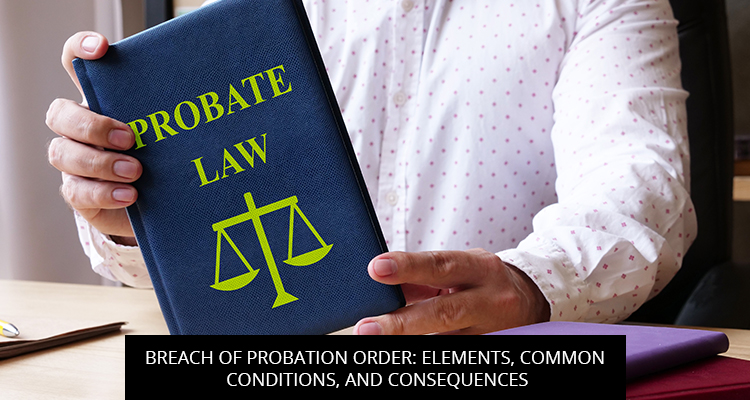
Being charged with a crime is, absolutely, a stressful event that one may experience. The assistance of a strong defense counsel can bring desired outcomes. Therefore, it is highly imperative to engage the services of a competent criminal lawyer who can help navigate the legal gray areas effectively.
What Is Probation?
Probation is one of the most common types of reformative sentences in the Canadian Criminal justice system given to a person who is found guilty of a crime. Probation is a tool used for the purpose of maintaining an equilibrium of the rights of a guilty person while monitoring their conduct at the same time.
The basic objective of a probation sentence is to offer the offenders a chance to start back their normal lives while keeping them at large. Thus, it can be safely concluded that probation is a conditional sentence whose breach can bring far-reaching consequences for the offender.
This article’s main intention is to highlight the avowed penalties and outcomes of breaching the probation sentence.
How Long Can A Person Be Placed On A Probation Order?
The sentencing judge usually sets the time duration for the probation sentence. Nonetheless, the maximum time period one can be placed on a Probation Order is three years.
Breach Of Probation Order
Section 733.1of the Criminal Code defines failure to comply with the probation sentence as a criminal offence. Moreover, it is a direct attempt to demolish the underlying notion of rehabilitation enunciated under probation sentences for the rampant administration of justice.
Elements Of Offence
The two essential elements that make up the offence of non-compliance with the Probation Order are as follows:
- It is necessary that the person is bound by a probation sentence and,
- The person has failed to abide by the conditions of probation without a lawful justification
It is notable under s.732.1(2)(a) that a person under probation sentence is liable for maintaining peace and good conduct. This implies that the commission of illegal activities alone is not a sufficient condition for the conviction of a breach of a probation order.
What Constitutes Breach Of Probation?
Breach of probation is a blanket term that encompasses things like:
- Committing another offence while on Probation
- Failure to appear before the court when required
- Contacting a person or visiting the areas for which you have been prohibited to visit or contact
- Causing threat to public security
- Failure to maintain lawful employment
- Failure to abstain from drugs consumption
- Failure of prescribed community service, if any
- Resisting arrests by the Police, etc.
Note: Please be advised that the above-mentioned relates to a non-exhaustive list of conditions that may make up a probation order. Different conditions may be imposed subject to particular circumstances of the case.
Penalty For The Violation Of Probation Rules
If a person violates the conditions of a Probation sentence on purpose, then the penalties can be given one of the following ways;
- For the summary offences, a person convicted of breach of probation can be charged with a fine of up to $5000 and/or imprisonment of approximately 18 months or both;
- For indictable offences, a person can be exposed to a penalty of imprisonment of not more than 4 years.
The Next Move
It is pertinent to mention that probation is not an alternative to sentencing. However, it is a specific form of a sentence of lesser severity. The Canadian Criminal Law has room for judicial discretion regarding the breach of probation. Hence, one must not lose hope that the violation of the probation Order will, in any case, result in a conviction.
If you are facing any issues relating to your right to conditional liberation, do not hesitate to get in touch with a qualified criminal lawyer at Ayaz Mehdi Professional Corporation who can empathize with your side of the story.
Disclaimer: Kindly note that sending or receiving information through this site does not establish a solicitor-client relationship. Legal matters are fact-specific, and the law is variably changing. The views expressed and the content provided on this blog are general guidelines and cannot substitute for proper legal advice. Schedule your legal consultation by clicking here: Let’s meet!






